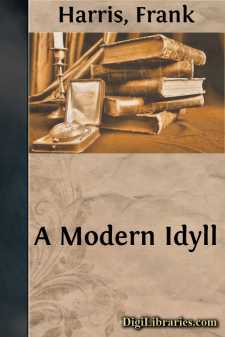Categories
- Antiques & Collectibles 13
- Architecture 36
- Art 48
- Bibles 22
- Biography & Autobiography 815
- Body, Mind & Spirit 144
- Business & Economics 28
- Children's Books 18
- Children's Fiction 14
- Computers 4
- Cooking 94
- Crafts & Hobbies 4
- Drama 346
- Education 58
- Family & Relationships 59
- Fiction 11835
- Games 19
- Gardening 17
- Health & Fitness 34
- History 1378
- House & Home 1
- Humor 147
- Juvenile Fiction 1873
- Juvenile Nonfiction 202
- Language Arts & Disciplines 89
- Law 16
- Literary Collections 686
- Literary Criticism 179
- Mathematics 13
- Medical 41
- Music 40
- Nature 180
- Non-Classifiable 1768
- Performing Arts 7
- Periodicals 1453
- Philosophy 65
- Photography 2
- Poetry 896
- Political Science 203
- Psychology 44
- Reference 154
- Religion 515
- Science 126
- Self-Help 85
- Social Science 83
- Sports & Recreation 34
- Study Aids 3
- Technology & Engineering 59
- Transportation 23
- Travel 463
- True Crime 29
Our website is made possible by displaying online advertisements to our visitors.
Please consider supporting us by disabling your ad blocker.
Elder Conklin
by: Frank Harris
Description:
Excerpt
As soon as the Elder left the supper-table his daughter and the new schoolmaster went out on the stoop or verandah which ran round the frame-house. The day had been warm, but the chilliness of the evening air betokened the near approach of the Indian summer. The house stood upon the crest of what had been a roll in the prairie, and as the two leant together on the railing of the stoop, they looked out over a small orchard of peach-trees to where, a couple of hundred yards away, at the foot of the bluff, Cottonwood Creek ran, fringed on either bank by the trees which had suggested its name. On the horizon to their right, away beyond the spears of yellow maize, the sun was sinking, a ball of orange fire against the rose mist of the sky. When the girl turned towards him, perhaps to avoid the level rays, Bancroft expressed the hope that she would go with him to the house-warming. A little stiffly Miss Conklin replied that she'd be pleased, but—
"What have I done, Miss Loo, to offend you?" the young man spoke deprecatingly.
"Nothin', I guess," she answered, with assumed indifference.
"When I first came you were so kind and helped me in everything. Now for the last two or three days you seem cold and sarcastic, as if you were angry with me. I'd be sorry if that were so—very sorry."
"Why did you ask Jessie Stevens to go with you to the house-warmin'?" was the girl's retort.
"I certainly didn't ask her," he replied hotly. "You must know I didn't."
"Then Seth lied!" exclaimed Miss Conklin. "But I guess he'll not try that again with me—Seth Stevens I mean. He wanted me to go with him to-night, and I didn't give him the mitten, as I should if I'd thought you were goin' to ask me."
"What does 'giving the mitten' mean?" he questioned, with a puzzled air.
"Why, jest the plainest kind of refusal, I guess; but I only told him I was afraid I'd have to go with you, seein' you were a stranger. 'Afraid,'" she repeated, as if the word stung her. "But he'll lose nothin' by waitin', nothin'. You hear me talk." And her eyes flashed.
As she drew herself up in indignation, Bancroft thought he had never seen any one so lovely. "A perfect Hebe," he said to himself, and started as if he had said the words aloud. The comparison was apt. Though Miss Loo Conklin was only seventeen, her figure had all the ripeness of womanhood, and her height—a couple of inches above the average—helped to make her look older than she was. Her face was more than pretty; it was, in fact, as beautiful as youth, good features, and healthy colouring could make it. A knotted mass of chestnut hair set off the shapely head: the large blue eyes were deepened by dark lashes. The underlip, however, was a little full, and the oval of the face through short curve of jaw a trifle too round. Her companion tried in vain to control the admiration of his gaze. Unelated by what she felt to be merely her due, Miss Conklin was silent for a time. At length she observed:
"I guess I'll have to go and fix up."
Just then the Elder appeared on the stoop. "Ef you're goin'," he said in the air, as his daughter swept past him into the house, "you'd better hitch Jack up to the light buggy."
"Thank you," said the schoolmaster; and for the sake of saying something, he added, "What a fine view." The Elder paused but did not answer; he saw nothing remarkable in the landscape except the Indian corn and the fruit, and the words "fine view" conveyed no definite meaning to him; he went on towards the stables.
The taciturnity of the Elder annoyed Bancroft excessively. He had now passed a couple of weeks as a boarder with the Conklins, and the Elder's unconscious rudeness was only one of many peculiarities that had brought him to regard these Western folk as belonging almost to a distinct species. George Bancroft was an ordinary middle-class Bostonian.
He had gone through the University course with rather more than average success, and had the cant of unbounded intellectual sympathies....








